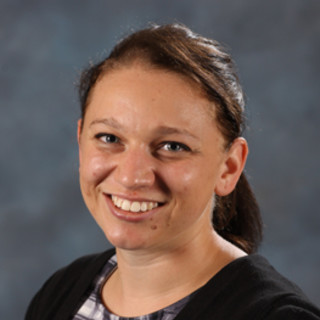
It was my first month of intern year working on the wards, and it was bad. Each day was long, exhausting, and ended with the feeling that I couldn’t do anything right. Being with my patients felt like my only refuge. When I was with my patients, I felt like I was doing an OK job, but doing everything else – rounds, notes, consults, faxes, orders, responding to the pager – felt like failure after failure.
One morning, I was pre-rounding on one of my patients, Katherine, who was a quiet kid on the nephrology service and pretty sick. She had just been diagnosed with some pretty severe lupus nephritis. Katherine and her family were, obviously, devastated but in general, both her and her mom were keeping on brave faces.
That morning, when I crept in quietly to do my exam, Katherine’s mom was already awake, sitting up and sobbing. She apologized for crying and said she had to cry when Katherine was asleep because she didn’t want Katherine to see how worried she was. I ached for this mom, sitting there, in tears, vulnerable, alone, trying to stay strong for her daughter but feeling helpless. Honestly, after weeks of feeling like a failure of a doctor for over 12 hours a day, I was familiar with that feeling of helplessness. As a doctor, I didn’t have a cure for lupus nephritis to give to Katherine and her mom that morning — but as a person, I had a big heart in my chest with some love in it and two ears to listen.
So, I sat down with Katherine’s mom, held a box of tissues in my lap, listened to her worries, offered some words of comfort and, after her tears stopped, left her in better condition than I found her in. Then I rushed to make it to rounds on time.
Later that afternoon, it was time to sit down with the attending for end-of-the-week feedback. (It’s a weird practice when you think about it. I mean, the attending is going off of service, so there’s no opportunity to show improvement based on the feedback, which means that, post-feedback, all that’s left to do is feel embarrassed and frustrated.) I was told (accurately) that I needed to improve my pre-rounding efficiency (among other things), citing as an example that there had been a patient that I didn’t get a chance to examine that morning prior to rounds. I knew I had made a conscious choice to sit with Katherine’s mom instead of seeing my last patient. But I wasn’t about to use Katherine’s misfortune as an excuse, so I never told my attending why I had failed to see all my patients that morning. As a person, I knew that sitting with a sobbing, worried mother mattered more than squeezing in a cursory exam before 8 a.m. on a stable kid. But from that feedback session, it felt as if I had made the wrong choice, assuming I wanted to be the perfect intern. Why did it seem like my instincts and core values were a roadblock to my success in medicine?
In retrospect, of course, they weren’t. But I did struggle with the internal conflict for a while. I think the disconnect is this: all of our lives, and throughout medical school, we are constantly graded. We need a high score, a gold star, or a letter of recommendation to get to the next step. Even after graduation, we apply that same template to our lives as interns. In residency, we are evaluated and critiqued weekly, as attendings go on and off service, and being the high-achievers that we are, most of us work hard to get a good evaluation (or to be liked by an attending).
Feedback and evaluation are a vital part of how we learn and improve, but it also sets a dangerous trap, turning taking a history, presenting on rounds, and developing a plan into a performance rather than an act of service. But here’s the problem: as an intern, you are your patient’s doctor. It’s not about you anymore, it’s about the patient — and your patient could not care less about your evaluation. They don’t want a performance, they want a complete person — with the values, compassion, integrity, quirks, flaws, empathy, and experiences that make a person whole — caring for them in their vulnerable moments.
If I could sit down with my intern self, maybe in one of those weird feedback sessions, I would say this: give yourself permission and grace to leave the days of performing behind and make serving your patients your focus. Don’t let constant critique trick you into chipping away at your true self to fit the mold of a “perfect” resident. Stay malleable enough to let feedback shape you into the best possible version of yourself, the version your patients deserve. It’s not just about a longer white coat, or the letters “Dr.” before your name; transitioning from student to intern is sacrificing the drive to be perfect for your superiors and replacing it with a drive to do right for your patients.
Megan Ottomeyer, DO, MS, is a neonatal-perinatal medicine fellow in St. Louis, Missouri.
All names and identifying information have been modified to protect patient privacy.







